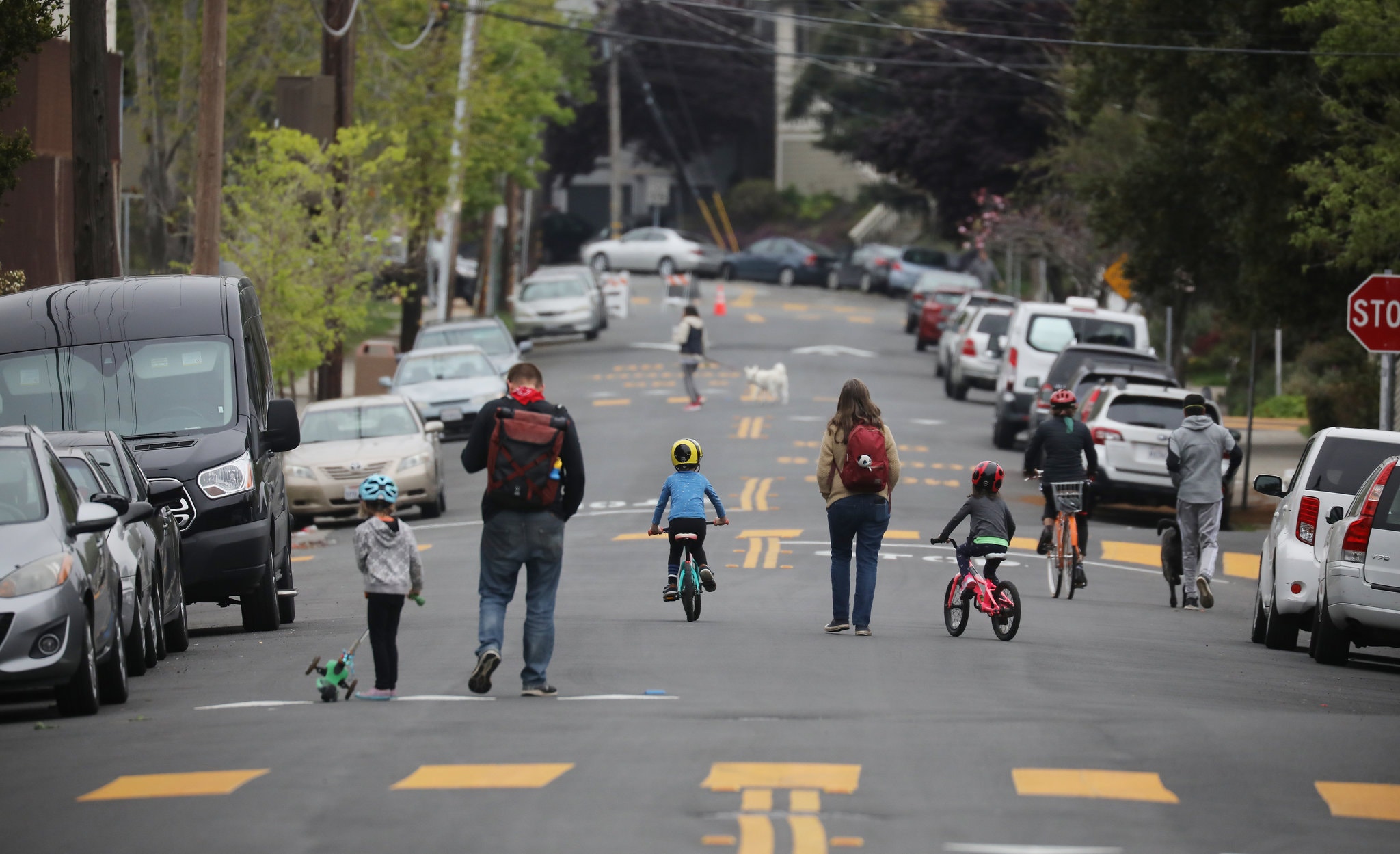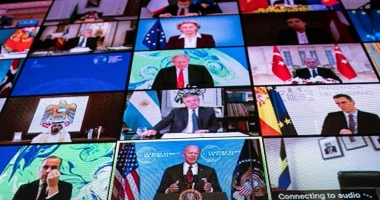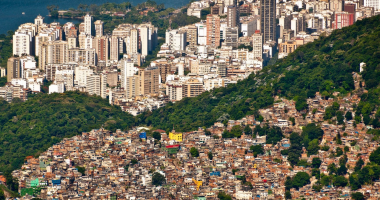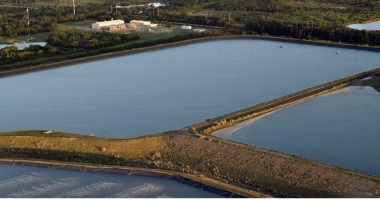Climate, Health and Equity Brief
Carless streets, remote work and green recovery
May 1, 2020
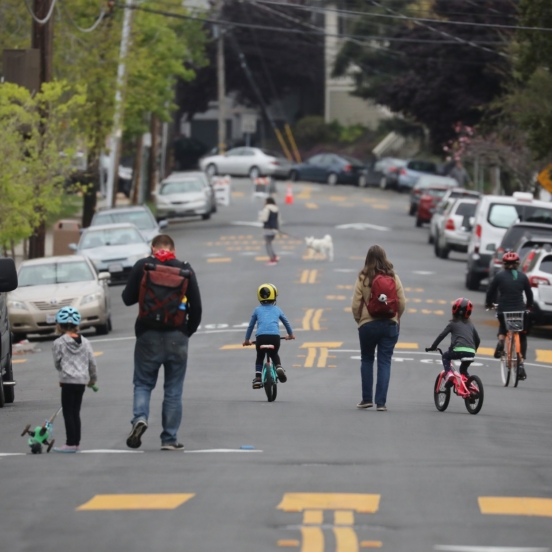
|
Hot Topic: Potential. As leaders begin to ease shelter-in-place restrictions, they have an unprecedented opportunity to build a greener post-pandemic world. Cities are closing streets to vehicle traffic to make room for social-distancing pedestrians, companies are embracing remote work, and nature is seeing a resurgence, even in big cities. Leaders of government and industry can use this disruption of the status quo to plan for the future with public health—and the health of the planet—in mind.
To this end, Germany provides a model for transition. Two decades ago, the country and its municipalities began a shift away from fossil-fuel electricity with a host of forward-thinking policies. Those efforts paid off with hundreds of thousands of renewable energy sector jobs—and Germany now generates 43 percent of its electricity from renewable sources, compared with just 17.5 percent in the United States.
One study out this week found that 10 existential threats to humanity—climate change, environmental decline and pandemic disease among them—are interrelated and must be tackled together. So far, 15 U.S. states and dozens of municipalities have implemented 100 percent clean electricity goals that promise to do just that. Will COVID-19 prove to be the devastating wake-up call that sets the world on a more responsible path? Only time—and our level of commitment and activism—will tell.
—Matt & Traci, GMMB
Health
More than a dozen temporary COVID-19 medical centers in the U.S. are located in high-risk flood zones that could face critical disruptions during a storm surge. (E&E News)
Yet another study confirmed that reduced vehicle and industrial emissions lead to immediate public health benefits, including the prevention of asthma, pre-term births and pollution-related deaths. (The Guardian)
A new report identified 10 threats to humanity’s survival, including climate change, resource scarcity and pandemic disease and argues that the dangers are interconnected and must be solved simultaneously by world leaders. (The Guardian)
Equity
According to the 2020 State of the Air report, 14 million people of color in the U.S. live in counties with disproportionately high particle and ozone pollution that increases health risks and premature death. (Forbes)
Climate, Health & Equity Brief subscribers are invited to join Grist for COVID-19, Climate Justice, and Communities of Color. What’s Next?, a webinar on Tuesday, May 5 at 3 p.m. ET. (Grist)
Politics & Economy
According to a new report, solar and wind are now the cheapest electricity sources for two-thirds of the world’s population, accelerating the decline of coal and natural gas as governments boost clean-energy targets. (Bloomberg)
A new paper found that circular production within the industrial sector, which recycles existing products rather than manufacturing new ones, could eliminate9.3 billion tons of carbon emissions by 2050. (The New York Times)
As the coronavirus pandemic continues, U.S. city officials are making the difficult decision to redirect funds from coastal and flood resilience projects to finance critical emergency services. (The New York Times)
Action
Germany’s ambitious clean energy program, developed over the past two decades, provides a model for how the world can rebuild with a green economy following the coronavirus pandemic. (Inside Climate News)
While the Trump administration continues to undermine federal climate policies, 15 U.S. states are fighting back and showing leadership by implementing 100 percent clean electricity policies and pollution reduction programs. (Center for American Progress)
Sweden closed its last coal-fired power station, joining Belgium and Austria as the first three European countries to completely phase out coal. (The Independent)
Cities including New York, San Francisco, Milan and Brussels are closing streets to vehicle traffic to allow pedestrians and cyclists space for social distancing as officials gradually ease coronavirus restrictions. (The New York Times)
Kicker
Need a smile? Check out these photos of animals meeting each other for the first time at zoos and aquariums devoid of people during COVID-19.
“We remember, we rebuild, we come back stronger.”
– Former President Barack Obama


